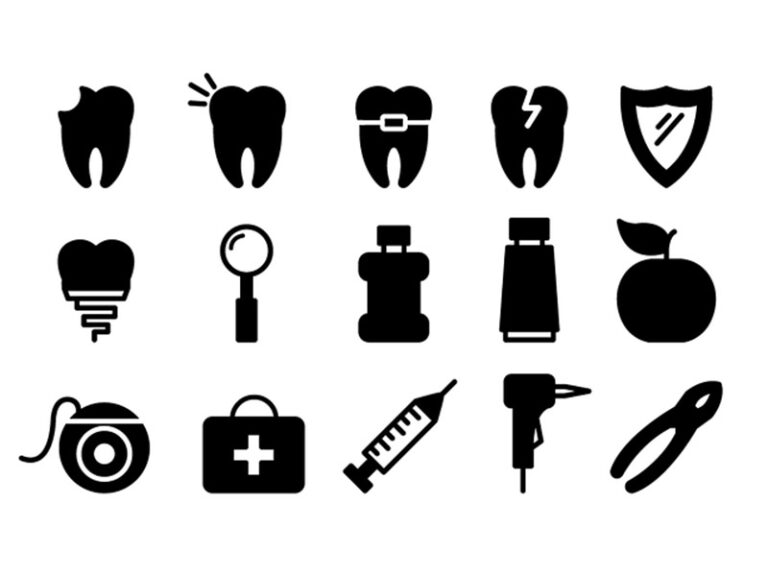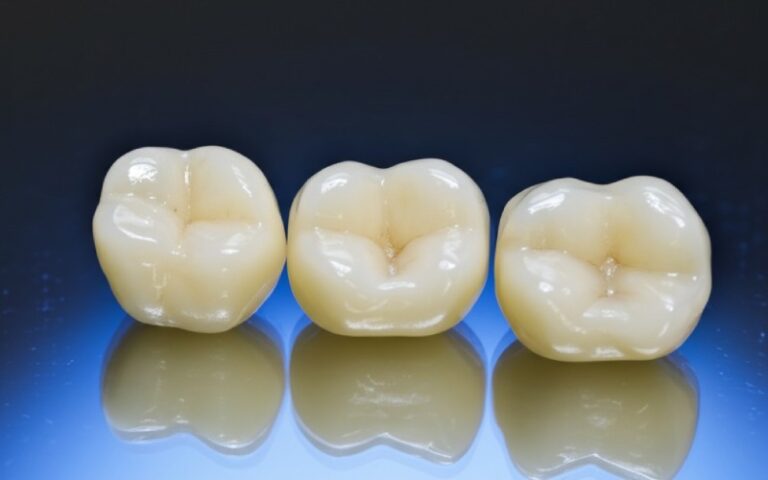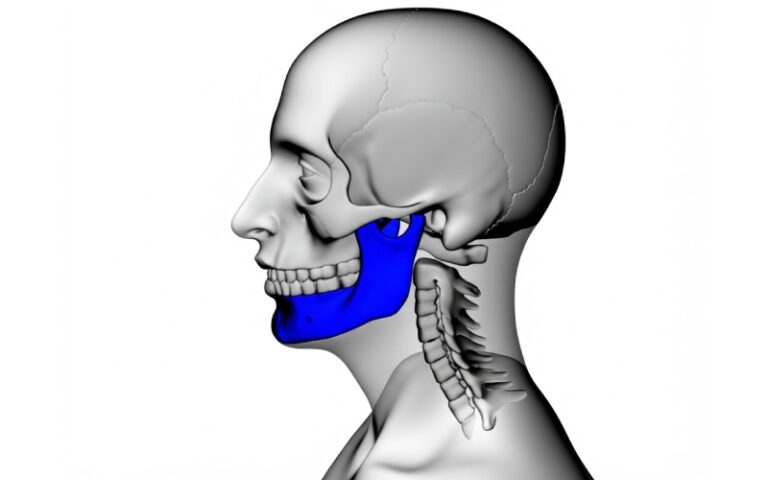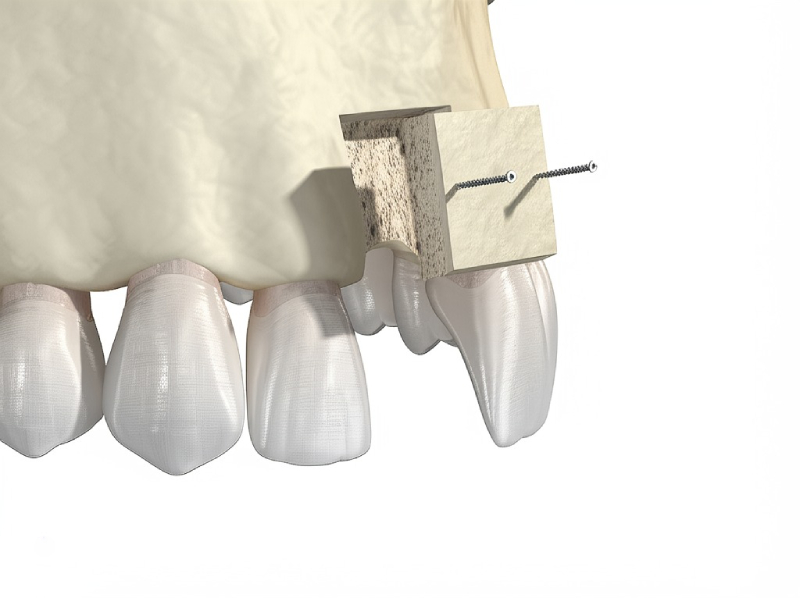
Bruxism: Understanding Tooth Grinding and How to Treat It
That dull ache in your jaw every morning. The annoying headaches that just won’t go away. Or maybe your partner says you make strange grinding sounds at night. If you’ve ever asked, “Why am I clenching or grinding my teeth?”—relax. You’re not the only one. Tooth grinding, or bruxism, is more common than you think, but it’s easy to get wrong. Here’s the good news: you can take clear steps to feel better, protect your teeth, and finally sleep better at night.
Table of Contents
What Is Bruxism? The Two Main Types
Before we talk about how to deal with it, let’s cover the basics. Bruxism is the medical word for teeth grinding and jaw clenching—most people do it without even knowing. And while it sounds simple, bruxism comes in two main forms:
Sleep Bruxism (Nighttime Grinding)
Ever wake up and your jaw hurts but you don’t know why? That could be sleep bruxism. This teeth grinding happens when you’re fast asleep. You’re not doing it on purpose; your mouth muscles just keep moving at night. Experts believe sleep bruxism is closely linked with other sleep problems, especially obstructive sleep apnea (OSA)—a serious sleep condition where your breathing stops off and on when you’re sleeping.
Awake Bruxism (Daytime Clenching)
Do you catch yourself clenching your jaw when you’re upset or really focused? That’s awake bruxism. Unlike nighttime grinding, this type usually shows up when you’re awake—like in rush hour traffic or during a stressful work meeting. Your body uses it as a way to handle anxiety, anger, or deep thoughts, but with practice you can learn to notice and stop it.
Quick Fact: Studies say up to 16% of adults have sleep bruxism and 22-31% report daytime jaw clenching. So you’re definitely not alone.
How Do I Know If I Have Bruxism? Key Signs and Symptoms
It’s easy to miss, because most people grind their teeth when they don’t even know it. Still, your body gives you warnings. Watch out for these:
- Worn, flat, chipped, or broken teeth
- More tooth pain or sensitivity
- Tight, tired, or sore jaw muscles, especially in the morning
- Dull headaches starting at your temples
- Ear pain (even if your ears are healthy)
- Sores or rough spots from biting the inside of your cheek
- Grinding or clicking sounds at night (your partner may hear it first)
- Pain or soreness in your jaw, neck, or face
- Tooth enamel looking thin or worn
- Jaw that locks or is hard to open all the way
Tip: Sometimes teeth feel “loose” or fillings break a lot. If you notice stuff like this, it could be bruxism.
Why Does Tooth Grinding Happen? Finding the Triggers
Let’s be real—bruxism isn’t your fault. Usually, it’s a mix of a few things. Here are the most common reasons:
Mind and Lifestyle Factors
When life is stressful, your jaw might join in. Stress, worry, and even your personality can play a big part. If you’re naturally anxious, a go-getter, or a bit of a perfectionist, bruxism is more likely to happen to you.
But it’s not just your mind. Your habits count, too. Drinking caffeine, especially late in the day, keeps your brain going when it should be calming down. Alcohol messes with your sleep, and grinding is more likely after a drink. Smoking or vaping tightens your jaw muscles, so clenching is easier.
Real Life Example: Remember your last big work deadline? Did your jaw get tighter as the stress went up? That’s your body reacting.
Physical and Health Factors
Some people are at bigger risk because of how their teeth come together or because they have missing or crooked teeth—this is called malocclusion. The way your upper and lower teeth meet can make grinding and tooth damage more likely. Some medicines (especially antidepressants like SSRIs) can also cause bruxism as a side effect. If your jaw started hurting after taking a new medicine, ask your doctor.
Also, some health problems are linked to bruxism. People with obstructive sleep apnea (OSA) have a much higher chance of grinding at night—up to 50% of them do. Other problems like Parkinson’s disease, GERD (acid reflux), and some kinds of dementia can also be connected.
The Main Triggers:
- Stress and worry
- Personality (aggressive, hyper, competitive)
- Lots of caffeine or alcohol
- Nicotine use
- Sleep trouble (like OSA)
- Bad bite or missing teeth
- Some medicines
- Other health problems (Parkinson’s, GERD, dementia)
Did You Know? Around 70% of sleep bruxism comes straight from stress. Managing stress isn’t “just a tip”—it’s the real solution.

How to Treat Bruxism: Simple Steps to Relief
Here’s the good news. You have options—some you can do at home, others with help from your dentist. Let’s check out what really works, so you can feel better and save your teeth.
Step 1: Dentist-Approved Treatments
Custom Mouthguards and Splints
Think of a tough, thin cover between your top and bottom teeth. That’s a custom mouthguard or splint. Your dentist makes a mold of your mouth, then creates a guard just for you. This does two things:
- Shields your teeth from wear and damage
- Might help relax and move your jaw so muscles can chill out
Why get a custom one? Store-bought guards help a bit but can fit badly. They might even make jaw pain worse. A dentist-made mouthguard costs more ($300-$800), but that’s much cheaper than fixing broken teeth later.
Bite Correction
If your teeth are really out of line (like crooked or missing teeth), your dentist might suggest braces, aligners, or crowns to fix how your teeth meet. This option won’t work for everyone, but for some folks it’s a life-changer.
To sum up: Mouthguards keep teeth safe, bite fixes go after the cause.
Step 2: Medical Treatments
Botox Injections
If nothing else helps, Botox (yep, the wrinkle stuff!) can change the game. A doctor puts small shots in your masseter (the main jaw muscle), which partly relaxes it and decreases grinding.
The proof: Studies say Botox can lower grinding and pain by more than 50% for a few months. It won’t cure you, but it’s a big relief, especially if your jaw is in a lot of pain or is getting bigger from heavy grinding.
Medicines
Your doctor might suggest a muscle relaxer for short-term use (usually at bedtime). These can help, but they’re usually only used for a week or two because of side effects. If your grinding started after a new medicine (especially an antidepressant), tell your doctor—they may need to tweak your dose or switch your medicine.
Quick Tip: Don’t stop or change your medicine without seeing your doctor first.
Step 3: At-Home Habits and Lifestyle Changes
Most of your bruxism battle will happen at home. Here’s where you really make a difference.
Stress Relief
Since stress can start bruxism, it helps if you learn to manage it. Try these:
- Mindfulness: Even five minutes of simple meditation can quiet your mind.
- Yoga or easy stretching: This relaxes your muscles and calms you down.
- Therapy (especially CBT): This can help with bruxism, stress, and anxiety.
- Breathing exercises: Deep belly breaths whenever you feel tension.
Relaxing Your Jaw Muscles
With a little practice, you can teach your jaw to relax, especially if you notice yourself clenching.
- Put the tip of your tongue between your front teeth and close your jaw softly. This helps your jaw relax and reminds you not to clench.
- Gentle jaw massage: Use your fingertips in small circles on your jaw and temples.
- Warm compress: Put a warm, wet cloth on your jaw at night.
Better Sleep Habits
Good sleep isn’t just for bruxism—it helps your whole body. Try these:
- Go to sleep and wake up at the same time every day.
- No screens (phones/TVs/tablets) at least 30 minutes before bed.
- Keep your room cool, dark, and quiet.
- Cut out caffeine and alcohol, especially in the evening.
Bonus: If you think you might have sleep apnea, talk to a sleep doctor—fixing that can help your grinding a lot.
Watch Your Triggers
- Drink less caffeine, especially after lunch.
- Don’t drink alcohol before bed.
- Stop chewing pens or anything that isn’t food.
Supplements: Some studies say magnesium may help. If you don’t get enough from food, ask your doctor about taking it.
Check Your Habits
- Catch yourself clenching: Set a phone reminder or put a note on your desk to check and relax your jaw a few times a day.
- Biofeedback: Some people use small gadgets that let them know when their jaw muscles get tense—it’s like mindfulness, but for your mouth.
When to See a Doctor or Dentist
Home remedies are a good start, but sometimes you need to see a pro. Go see someone if:
- Your jaw pain is always there, really bad, or getting worse.
- You see damage—chipped, broken, or flat teeth.
- You have lots of headaches, especially in your temples or behind your eyes.
- Your partner hears you grinding a lot at night, or you wake up with a sore jaw or teeth.
- You snore loudly, gasp in your sleep, or always feel tired—these might mean you have sleep apnea.
- Nothing helps after a few weeks.
Most dentists have seen lots of bruxism cases, and many work with sleep doctors now. No, you’re not “making it up”. You deserve a real plan for relief.
Conclusion: Taking Care of Your Jaw Health
Let’s sum it up:
- Bruxism is common and fixable—no reason to feel weird or ashamed.
- It’s not “just stress”—your body’s telling you to do something.
- Mouthguards protect your teeth; stress help and good habits treat the cause.
- For tough cases, things like Botox or fixing your bite really help.
- Going to a doctor or dentist is smart, not a last hope.
What to do next:
- Act now—don’t wait. Every day you spend clenching or grinding wears your teeth down.
- Book a visit with your dentist or doctor. Bring your list of questions and symptoms—and maybe even your partner to share what they see.
- Remember: You can feel better. You can wake up rested, pain-free, and ready to smile.
Real World FAQs
How common is bruxism?
Sleep bruxism shows up in 8-16% of adults, awake bruxism in 22-31%. (Journal of Oral Rehabilitation, Sleep Foundation)
Does everyone with bruxism need treatment?
No, not always—especially kids (up to 40% grind their teeth). Kids often outgrow it. Adults, though, can break teeth and hurt their jaw long-term, so get it checked if it keeps up.
Can you cure bruxism?
You can almost always control and lessen it, but for most people, there’s no simple “cure.” Think of it like keeping your blood pressure under control—a mix of good habits and help makes it manageable.
Is a custom night guard worth the money?
Yes. The up-front cost ($300-$800) is way less than fixing broken teeth or crowns later.
Does Botox help jaw clenching?
Yes, and science says it works. Botox relaxes the strong jaw muscles. It really helps when nothing else does.
Sources
- American Dental Association (ADA)
- Journal of Oral Rehabilitation
- Cochrane Database of Systematic Reviews
- National Institutes of Health (NIH)
- Mayo Clinic
- The Bruxism Association
- Journal of Clinical Sleep Medicine
- Pain Research and Management
Your Healthy Takeaway: What to Remember
- Bruxism means grinding or clenching—most often at night or during stress.
- Stress, sleep problems, and bite issues are big causes.
- Look out for sore jaws, headaches, or worn teeth.
- Custom mouthguards, stress help, and better sleep habits are key.
- Don’t ignore pain or broken teeth—your dentist can help make a plan that actually works.
A pain-free, healthy smile is possible. Don’t just grit your teeth—start taking care of yourself today!
[Medically reviewed by Dr. Jane Doe, DDS. For personal advice, always talk with your dentist or doctor.]








